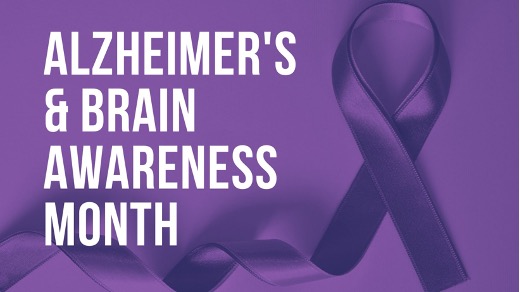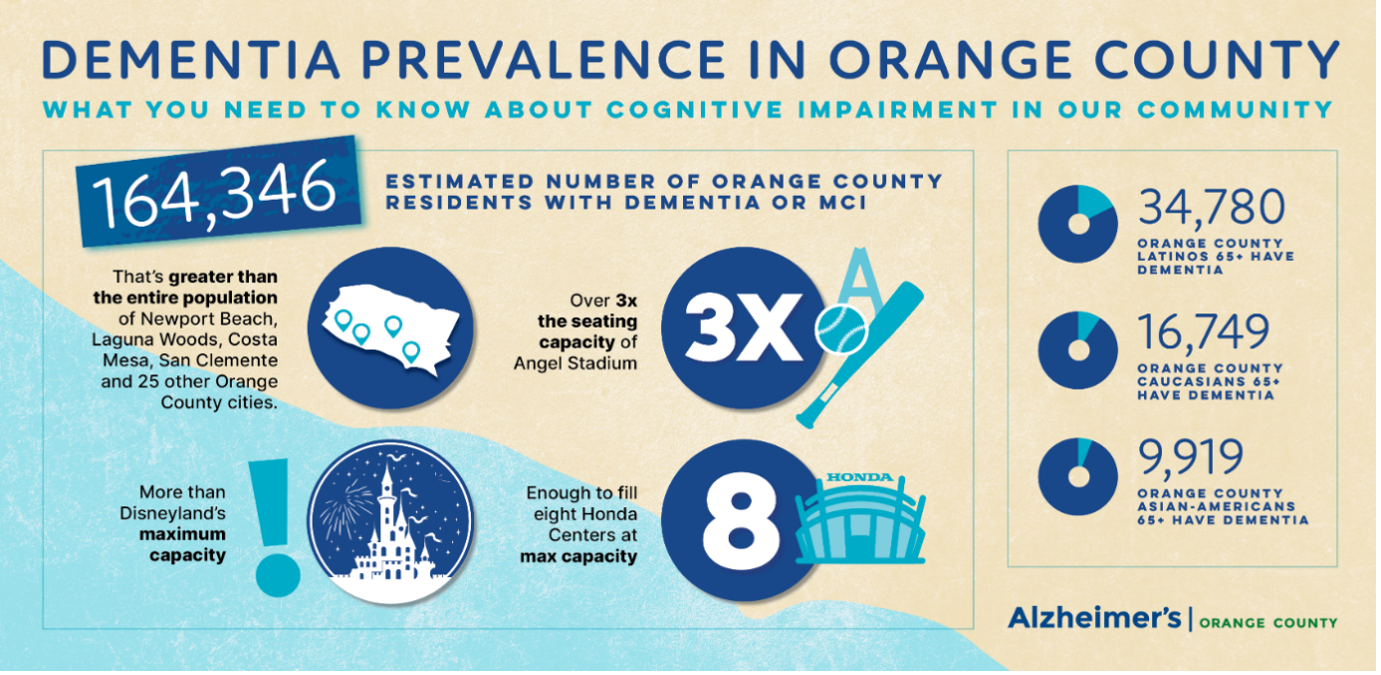Alzheimer's & Brain Awareness Month
 |
__SALUTATION__
June is Alzheimer's & Brain Awareness Month.
More than 55 million people are living with Alzheimer's or another dementia worldwide. In Orange County, over 164,000 people are affected by dementia or mild cognitive impairment. Support for individuals with Alzheimer's disease and their caregivers, early diagnosis, and ongoing research are crucial in addressing the impact Alzheimer's disease has on our community.
No one should be alone in this diagnosis. Below we have included facts and statistics from our local experts, Alzheimer’s Orange County and the Alzheimer’s Association, as well as additional resources they provide to support you and your loved ones.
WHAT IS ALZHEIMER’S
Alzheimer’s is a brain disease that causes problems with memory, thinking and behavior, and accounts for approximately 60-80% of all dementia cases. Dementia is a general term characterized by a decline in cognitive function that goes beyond what is considered a normal part of aging.
While there are various types of dementia, Alzheimer's disease is the most prevalent. It is a progressive neurological disease that primarily affects older adults, although it can also occur in younger individuals. The exact cause of Alzheimer's is not fully understood, but it involves the accumulation of abnormal protein deposits (amyloid plaques and tau tangles) in the brain, leading to the loss of brain cells and disruptions in communication between neurons.
 |
EARLY SIGNS AND SYMPTOMS OF ALZHEIMER’S
People living with Alzheimer's disease often experience difficulties with time and spatial orientation. According to the Alzheimer’s Association, early signs and symptoms of Alzheimer’s could include:
- Memory loss that disrupts daily life
- Challenges in planning or solving problems
- Difficulty completing familiar tasks
- Confusion with time or place
- Trouble understanding visual images and spatial relationships
- New problems with words in speaking or writing
- Misplacing things and losing the ability to retrace steps
- Decreased or poor judgment
- Withdrawal from work or social activities
- Changes in mood and personality
It is important for caregivers and loved ones to be aware of these challenges and provide support to individuals with Alzheimer's. Strategies such as maintaining a consistent routine, using visual cues and reminders, providing clear and simple instructions, and creating a safe and familiar environment can help manage these difficulties and enhance well-being.
HELPFUL RESOURCES
Every 66 seconds, someone in America develops Alzheimer’s. It is important that we raise awareness about the impact of Alzheimer’s and continue to support one another.
| Virtual Education Courses | Caregiver Health | |
| Local Referrals | Care Options |
As always, please do not hesitate to reach out if you need assistance with state-related issues.

